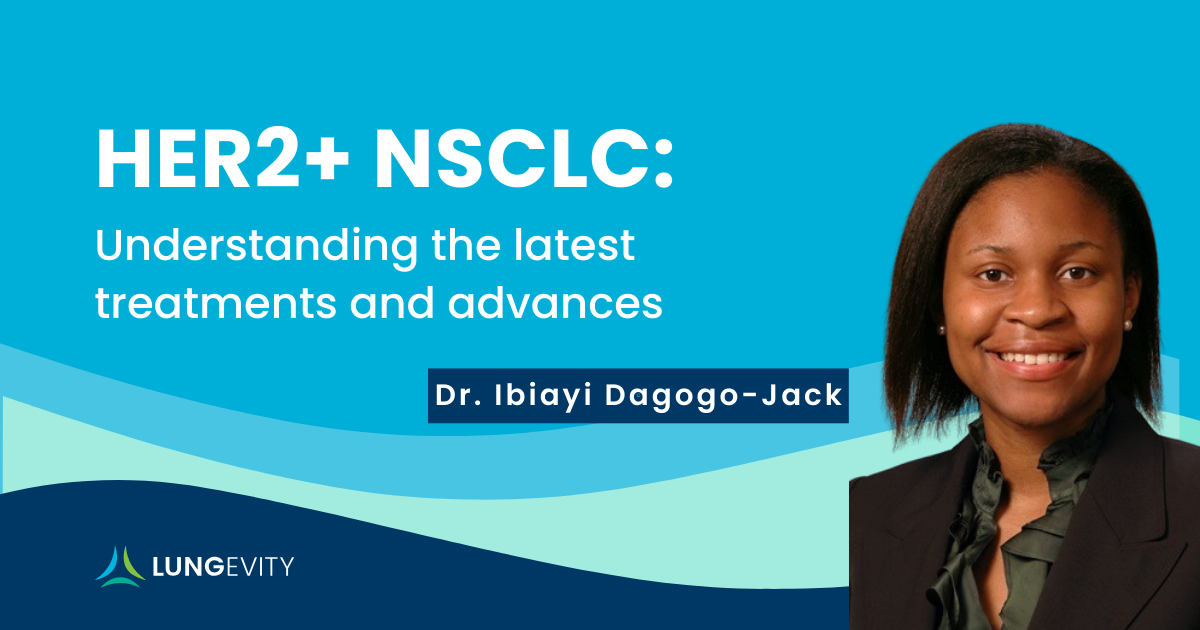Many people have heard of HER2-positive breast cancer. But HER2 is an important biomarker found in many different types of cancer—including non-small cell lung cancer (NSCLC).
A lot is known about how to treat HER2 in breast cancer, and researchers are leveraging that knowledge to bring treatment options to people living with HER2-positive NSCLC.
In the video below, Dr. Ibiayi Dagogo-Jack, assistant professor of Medicine at Harvard Medical School and thoracic oncologist at Massachusetts General Hospital, talks with LUNGevity’s Dr. Amy Moore about some of the frequently asked questions by people with HER2-positive NSCLC.
You can watch the entire conversation or use the timestamps below to find specific topics.

